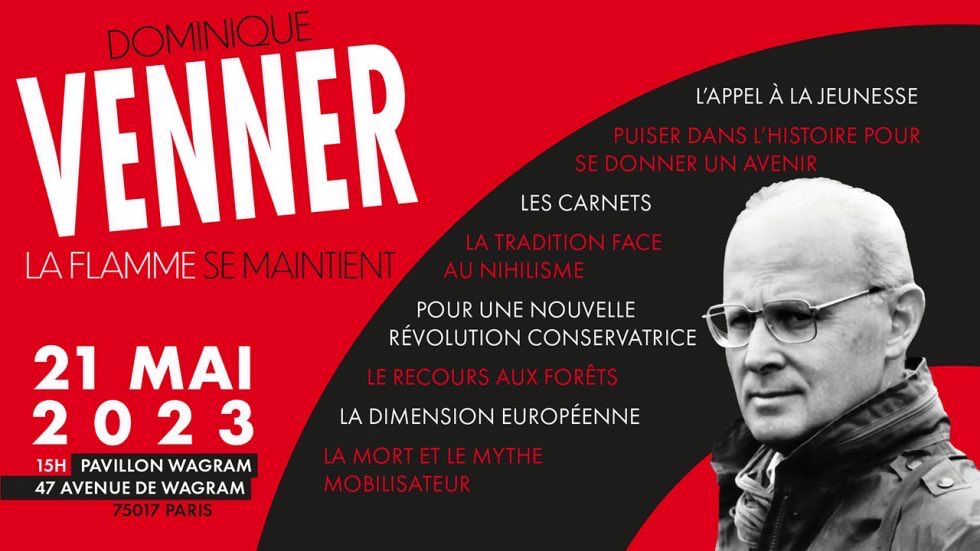
On Sunday, May 21st, the commemoration of the tenth anniversary of the death of historian and polemicist Dominique Venner, organised by the Iliade Institute, was banned by the Paris police prefecture. The attempt to reverse the decision of the prefecture was unfortunately unsuccessful.
Ten years ago, on 21 May 2013, the historian and essayist Dominique Venner took his own life in front of the high altar of Notre Dame de Paris at the age of 78, in an attempt to ‘awaken consciences’ to the peril of European civilisation’s slide into decline.
Dominique Venner is a leading figure in French right-wing identity circles. Sentenced to prison for his membership in the Organisation de l’Armée Secrète (OAS) at the time of the Algerian War, he is known to have been active in several organisations for the defence of Western civilisation, some of which were fascist in inspiration. He was a self-taught historian and published well-known works, notably on the history of the Resistance and the Collaboration of 1940-44. He founded the bimonthly magazine La Nouvelle Revue d’Histoire, allowing an alternative approach to history to the mainstream media. He was also known for his passion for hunting and weapons. Having rejected the Catholic faith and turning his attention toward paganism, he was distrusted by a part of the traditional French Catholic Right, which condemned his suicide at Notre Dame.
A meeting was organised by the Iliade Institute on the theme “Dominique Venner, la flamme se maintient” (Dominique Venner, the flame continues) to pay tribute to him, and was to be held on Sunday, May 21st at 3:00 p.m. in Paris. In an administrative order, the Paris police prefect banned the meeting, on the grounds that there were “serious risks that, on the occasion of this tribute, remarks inciting hatred and discrimination would be made.”
The Paris police prefect is responding to directives from the Ministry of the Interior, which requested on May 9th that any demonstration or gathering of the extreme Right or ultra-Right be banned. Such a ban had been imposed the week before on the conference and march organised by the Action Française, which was nevertheless allowed to take place, thanks to an emergency court decision overturning the prefectural order. The Iliad Institute also lodged an appeal, but it was not successful. “As of 2:30 p.m., the administrative court had not yet ruled on the summary application for freedom filed by the Iliade Institute,” the Institute said in a statement.
Faced with this clear obstruction by the authorities, the Iliad Institute’s managers do not intend to leave it at that and denounced the case as one of “prior censorship.” This system of opinion control was in force under the July Monarchy and the Second Empire and allowed for the censorship of content deemed to be criminal even before its publication. Since the law on the freedom of the press was passed by the Third Republic on 29 July 1881, the system of prior censorship is supposed to have disappeared from French law. However, this is what motivated the banning of the meeting in homage to Dominique Venner—the ‘risk’ that criminal statements would be made, as Jean-Yves Le Gallou, president of the Polémia Foundation and one of the founders of the Iliad Institute, reminds us on Twitter.
#Macron et #Darmanin rétablissent la censure préalable supprimée en… 1881 (sauf temps de guerre) @_polemia @InstitutILIADE https://t.co/6ceNq0HHnZ
— Jean-Yves Le Gallou (@jylgallou) May 22, 2023
The Iliade Institute now intends to initiate several legal proceedings: an appeal to the Paris Administrative Court to obtain material compensation, an appeal to the Council of State against the circular issued by the minister Gérald Darmanin, and finally a criminal procedure against the Prefect Nunez for political discrimination.
